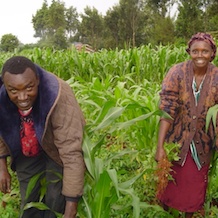- Home
- About the alliance
- Key researchers
- News
- Events
- Case studies
- Climate science: wheat can’t stand the heat
- Controlling major diseases of world crops
- Farming to feed the nation
- Food security in early modern England
- Healthy Food from Healthy Animals
- Helping UK wheat breeders through genomics
- Impacts of agriculture on greenhouse methane capture by soils
- Livestock can produce food that is better for people and the planet
- Managing sheep scab
- Parasitoid webs in organic and conventional farming systems
- Positively managing ecosystems to increase their service value
- Predicting and protecting our pollinators
- Promoting sustainable food consumption and production
- Putting a stop to pain and distress in farm animals
- Seagrass and food security
- Technology to improve water usage efficiency
- The 'push-pull' cropping system
- The North Wyke Farm Platform
- Towards sustainable agriculture
- Transparency of food prices
- Yes we (may) have no bananas
- South West Biosciences Doctoral Training Partnership
- Contact us

Farmers in Kenya.
The 'Push-Pull' cropping system: feeding people, feeding the soil
Rothamsted Research
Researchers: John Pickett and Zeyaur Khan
Funders: BBSRC; International Foundation for Science, EU; Rothamsted International African Fellowship
A novel ‘push-pull’ cropping system has been developed by a research collaboration between Rothamsted Research and the International Centre of Insect Physiology and Ecology (Kenya).
This agricultural advance, which can double maize yields, involves attracting insect pests (stemborers) with trap plants (pull), whilst driving them away from the main crop using a repellent intercrop (push).
Chemicals released by the intercrop roots also induce abortive germination of the parasitic striga plant, providing very effective control of this noxious weed.
The companion plants provide high value animal fodder, facilitating milk production and diversifying farmers' income sources. Furthermore, soil fertility is improved and soil degradation reduced.
The technology is appropriate and economical as it is based on locally available plants, rather than on expensive external inputs, and fits well with traditional mixed cropping systems in Africa.
To date, it has been adopted by over 40,000 smallholder farmers in East Africa, where maize yields have been increased from 1 t/ha to 3.5 t/ha, achieved with minimal inputs.
Find out more information at the "push-pull" website.


